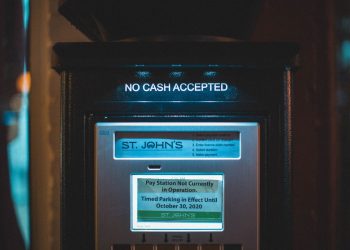No products in the cart.
AI in Home Security: Crafting New Careers in Smart Protection
AI is revolutionizing home security, creating exciting new career paths in smart protection. Discover how technology is reshaping the industry.
As the sun dipped below the horizon, the streets transformed. Lights flickered on, casting a warm glow on the sidewalks. But behind closed doors, a quiet revolution was brewing. Artificial Intelligence (AI) has not just entered our homes; it’s become a guardian. The convergence of technology and security is creating a new age—one where careers are emerging in unexpected ways.
Home security has always been about protection, but the tools of the trade have evolved dramatically. Gone are the days of simple locks and alarm systems. Now, we have smart cameras that recognize faces and motion detectors that can differentiate between a pet and an intruder. This technological shift is not just enhancing safety; it’s crafting a landscape ripe for new job opportunities.

According to a report by the International Data Corporation, the market for AI in home security is projected to reach $14 billion by 2025, a staggering leap from $3 billion in 2020[1]. As demand grows, so too does the need for skilled professionals to navigate this evolving terrain. From data analysts to AI ethicists, the roles are as diverse as they are intriguing.
Let’s step back for a moment to understand the context. The Internet of Things (IoT) has paved the way for smart devices that communicate with one another, creating a seamless network of security. Imagine your front door locking automatically as you leave, or your security camera sending you a notification when it detects unusual activity. This interconnectedness not only enhances safety but also raises questions about privacy and data security.
The Internet of Things (IoT) has paved the way for smart devices that communicate with one another, creating a seamless network of security.
As these technologies proliferate, so too do the challenges. Cybersecurity threats loom large, and with them, the demand for cybersecurity experts is skyrocketing. Professionals who can safeguard AI systems from malicious attacks are becoming invaluable. In fact, a recent survey found that 61% of businesses plan to increase their investment in cybersecurity over the next year[2].
But it’s not just about defense. The home security landscape is also calling for creative minds. Product designers are needed to craft user-friendly interfaces for these advanced systems. Marketing specialists are essential for educating consumers about the benefits and functionalities of smart security products. Even customer service representatives require a new level of technical expertise to assist users in navigating their smart home ecosystems.
One shining example of this evolution comes from a startup called SecureTech, which specializes in developing AI-driven home security solutions. Founded by two recent graduates, the company has grown exponentially in just three years, thanks in part to their innovative approach to machine learning. They’ve created a suite of products that not only monitor your home but also learn from your habits, adapting to your lifestyle in real time. As the co-founder, Mia Chen, puts it, “We’re not just selling security; we’re selling peace of mind.”
However, this rapid growth isn’t without its drawbacks. The integration of AI and home security raises ethical questions. How much surveillance is too much? As we invite smart technology into our lives, we must also grapple with the implications of constant monitoring. Job roles are emerging not only to develop these technologies but also to address the ethical concerns surrounding them.
As companies like SecureTech expand, they are seeking AI ethicists—professionals who can guide the development of technologies that respect user privacy while maximizing safety. This is a new frontier in which professionals must balance innovation with responsibility. The demand for such roles is likely to increase, as consumers become more aware of their data rights and the potential risks associated with smart technology.
The future of home security careers is as dynamic as the technology itself. With advancements in machine learning, data analytics, and IoT, the possibilities are endless. We are witnessing the birth of new roles that didn’t exist a decade ago. Positions like smart home consultants, AI trainers, and cybersecurity analysts are becoming standard in the job market.
As companies like SecureTech expand, they are seeking AI ethicists—professionals who can guide the development of technologies that respect user privacy while maximizing safety.
Moreover, the gig economy is influencing how people approach these new opportunities. Freelancers are finding ways to monetize their skills in home automation and security consulting, allowing them to carve out niche roles that cater to individual consumer needs. Platforms such as Upwork and Freelancer are overflowing with job postings for remote security analysts and IoT specialists, indicating a shift in how we think about employment in this sector.
The implications extend beyond just job creation; they speak to a larger trend of how technology is reshaping our lives. As we lean into this new era, the intersection of AI and home security is not merely a technological advancement; it’s a reflection of our evolving relationship with safety, privacy, and community.
In conclusion, as we stand on the precipice of this new frontier, it’s clear that the future is bright for those willing to adapt and innovate. The job market is not just responding to the rise of AI; it’s being transformed by it. For the 16–35 demographic, this is an invitation to rethink career paths and explore the myriad opportunities that lie ahead. Just as our homes are becoming smarter, so too are our careers. The question remains: are you ready to step into the future?











